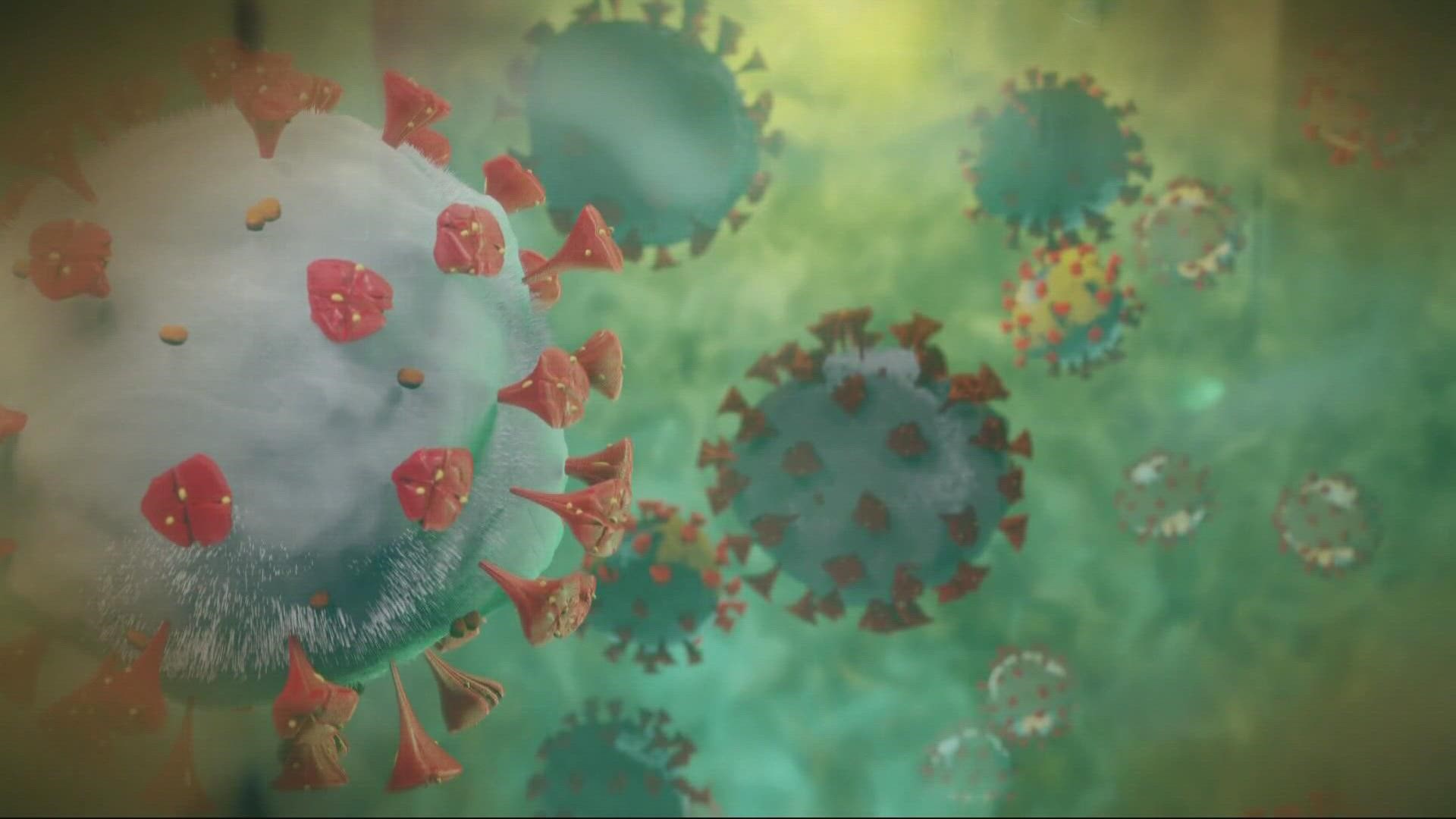PORTLAND, Oregon — Two years ago, Oregon reported its first presumptive case of COVID-19. One year ago, sleeves rolled up for the first doses of the COVID vaccine. Now, starting March 12, the next phase in the pandemic will begin. On that day, Oregon and Washington will lift its indoor mask mandates.
Portland Public Schools will let students and staff decide whether or not to wear masks starting March 14. So will Salem-Keizer Public Schools. Other school districts are still deciding. In another sign of change, Oregon Governor Kate Brown this week dropped an order requiring state employees to be vaccinated. She said the "extraordinary emergency" orders were no longer necessary as we learn to live with this virus.
That brings us to a word we've been hearing a lot lately: endemic.
“Basically, endemic is, it's here, and it's here to stay,” said Dr. Ken Stedman, a professor of biology at Portland State University. He said the difference between endemics and pandemics is how quickly they spread. For example, he said the flu is an endemic virus but still kills thousands of people each year.
“Endemic doesn't mean, oh, we don't need to worry about this anymore,” said Stedman. “Endemic means it's not something we have to worry about because it's spreading really fast, it's just something we need to worry about on a baseline level. What that baseline is, is not clear.”
Dr. Emilio DeBess agreed, adding that there is no specific threshold that will indicate COVID-19 will have reached an endemic state. As an epidemiologist and senior health advisor for Oregon's COVID-19 response, DeBess said how the community responds to living with COVID will help establish that endemic baseline. That includes making choices like getting vaccinated, wearing masks when appropriate and taking precautions that many people ignored before the pandemic.
“Lessons that we've learned through all this is that if you're sick, you stay home,” said DeBess. "If you're sick with symptoms compatible with either the flu or COVID you should get tested… the key is that you do not want to be the source of infection for anybody whether it be the flu, chicken pox or COVID-19."
If there is one certainty, doctors agree that there will be more COVID-19 variants.
“The question is, are those variants going to be a problem?” said Stedman. “We don't know and we're only going to know when they happen.”
It’s an ominous thought, but doctors point to the numbers for reassurance; daily case numbers have dropped back down to pre-omicron levels and are still falling. Plus, just over 75% of Oregonians are at least partially vaccinated. Add to that those who've contracted COVID and immunity levels are high.
“I think we’ve actually done a pretty good job in Oregon,” said Stedman.

